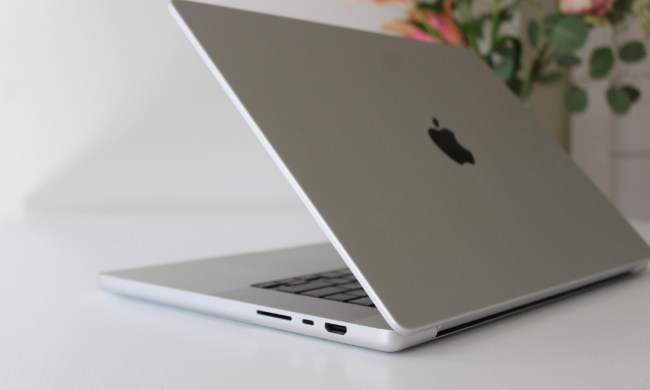Buying a used computer is a great way to save money, but there are a lot of risks that go along with dipping into the used pool. Here’s how to buy a great used PC without getting shafted.
Find the right source and do your research

Many online sellers offer used PCs or “refurbished” computers that are actually used computers in a thin disguise, although they can come with warranties and may also include accessories. Refurbished computers may also qualify for professional repairs where used computers from other sources may not. You can take a look at these sellers to see what is available and compare prices, but don’t be too quick to make up your mind. Popular options include:
- Amazon: Amazon affiliate sellers sell many used electronics. If you look for a PC here, beware of the term “refurbished.” Truly refurbished computers are carefully repaired with new parts, repackaged, and sold at a discount, usually by the manufacturer. Small sellers use the “refurbished” tag to attract buyers when all they really offer are used computers. They probably work without issue — but don’t be tricked into paying more for a “refurbished” model that hasn’t actually been refurbished.
- Apple: If you are looking for a used Mac, you can’t do better than Apple’s own refurbished website, where you can find deals for all sorts of Mac models that have been professionally certified. This usually knocks $100 to $200 off the price.
- eBay: Similar to Amazon, beware of labels and examine all the details carefully before you decide to buy. Real-world (not stock model) photos are important – as are past customer reviews of the seller.
- Craigslist/Online classifieds: Going to the ads is a risky proposition. You can probably find the best deals for a used PC on Craigslist, and can often take a look at the computer in person. However, Craigslist deals come with no warranties, no guarantees, no chance for refunds – and a lottery when it comes to who you are dealing with. These ads are best for buyers who have some knowledge of PCs and know what to look for.
- Local computer stores: Check out nearby computer stores to see if they have any used computer options as well. These used computers may be more expensive, but they have also been vetted by professionals and often come with warranties or refunds, so you get much more purchase protection. It’s a good choice for inexperienced buyers.
If you aren’t tech-savvy and don’t really know how to look at a computer or judge its specifications, try to find a willing tech friend (bribes of food and money are often welcome) to help you make up your mind.
Remember, a refurbished or used computer isn’t necessarily a good deal. When you find a used option, always compare prices online so you can see 1) how much the new version of the computer costs right now and 2) how many refurbished options are going for on other platforms.
How old is too old?
It helps to narrow down your search by glancing at the age of the used PC. Age affects many of the important features mentioned below, so it makes for a good blanket factor when filtering out options. But at what age do you put on the brakes?
Generally, aim for a computer that is three years old or newer. A computer that’s more than three years old is likely to be too slow, too worn, and too obsolete to make a good used purchase, no matter how much money you can save.

When computers grow more than a few years old, several problems start to accumulate. First, years of dust have built up in the components and fan system, which threatens future maintenance troubles. And while Moore’s Law may be slowing down but it is still in effect – the amount of storage and the quality of features on computers three years apart is still very noticeable.
For example: A 2012 27-inch iMac came with HD resolution, 8GB of RAM, a 2.9GHz processor on the base model, and a 1TB hard drive. A 2014 model comes with Retina 5K resolution, 8GB of RAM, a 3.5GHz processor, and a much faster 1TB fusion drive. Yes, some specs remain the same, but others see significant jumps in quality, and this is only a two-year gap.
Then you should consider battery life for laptops as well. If a laptop is three years old or more, then it’s likely that its battery isn’t what it used to be — and if the laptop was treated poorly, its battery could be very bad indeed. Batteries are, unfortunately, hard to test even if you get some hands-on time with the computer before you buy it. If you’re buying a laptop, be extra careful about battery life and try to budget for a new battery. A laptop that’s several years old is about due for a battery update, anyway. However, some laptops don’t have battery replacement options, and make poor used laptops if they’re a few years old.
The features to look for

What are the most important PC features for your job, gaming, schoolwork, or lifestyle? The answer is different for everyone, but here are features that are good news no matter what you want in your computer.
- Enough RAM: RAM tends to get updated quite regularly, which means that a used PC will probably have less RAM than a new one. While lots of memory is a nice perk, it often isn’t necessary unless you juggle a lot of software. For reference points, around 8GB is sufficient for nearly all activities. Newer PCs come with up to 16GB of RAM or up to 32GB for more robust computers.
- A CPU you can live with: Processor speed, much like RAM, is all about what you can live with. All things remaining equal – unless we are talking about a 1-2GHz difference between speeds – you aren’t likely to notice too much difference for everyday activities. Most users will be happy with a dual, but if you run demanding programs like Photoshop or video games, a quad is a better bet.
- Compatible ports/connections: It may be challenging, but you need to find a used PC that has all the necessary ports for your other devices. This includes HDMI, USB, and DVI, among others. The type of standard also matters. A USB 3.0 device will work with a USB 2.0 port, but not all features may be available. Now that USB-C is becoming more common, make sure you know if you need a USB-C connection on your computer — it may be challenging to find out of these on a used computer.
- Resolution: If you’re buying a laptop, you’ll be stuck with the display it includes. 1080p resolution or better is preferable, but if the laptop is more than three years old you’ll likely have to make do with 1,600 x 900 or 1,366 x 768. We don’t recommend going lower than that. If the system is a PC, you can buy whatever monitor you’d like, as long as it’s compatible with the ports on the desktop. We recommend a 22-inch, 1080p display at a minimum.
- About graphics: Integrated graphics cards are built in and cannot be switched out, while dedicated cards can be separately removed and upgraded. If you want a PC for gaming, choose a model with a dedicated graphics card. Notebook buyers can reference the GPU model at Notebook Check. If you’re buying a desktop, check out the chart at Tom’s Hardware.
- Clean and shiny: You want to stay away from computers that have dents, scratches, or a painful level of grime. It’s a sign of age and poor treatment – and could hint at lurking problems that haven’t yet manifested. Buy from someone who cares enough to clean up and maintain their PC, especially when they are trying to sell it.
- Size: Remember, older computers are often larger, and if you are getting a larger display (say, moving from a 22-inch to a 27-inch) that’s going to take up extra room too. Make sure your desk has enough room for all components that you are buying. If you’re getting a laptop, make sure the used model will fit in your bag and everywhere else you need to use it.
Testing PCs
If you are buying from an online marketplace like Amazon, you may not be able to test out a computer before you buy. But when possible, it is a very, very good idea. If you can see your used PC in person, take a little testing kit with you that includes cables to the ports you need, a disc for the drive, a flash drive, and anything else you may need. Play around with the computer, inspect and test the ports, download and upload some data. Generally, make sure that everything is in working order and that no hidden surprises waiting for you.
Warning signs of a bad deal

Stay away from things like:
- Broken components: Unless you are buying a PC with the intention to strip it for parts, broken components are a bad sign.
- Overclocking: This is a common strategy among smaller online sellers. They will overclock the processor so they can state that it’s a certain speed when it was originally lower. Stay away from these deals.
- No original materials: You really want the original manual, warranty information, computer ID numbers, and installation discs. This stuff is very important when it comes to OS upgrades and other future work or repairs.
- Bad reviews: Take a look at a seller and see what their reviews look like before clicking any buy buttons.
Resetting the computer and clearing data

Ideally, a computer will be fully wiped of all data and reset when you buy it. If you are purchasing from a certified refurbisher, this isn’t usually a problem. But if you are buying from an unverified third party, it’s a good idea to do a full data wipe and reset yourself, even if the system seems like it was already cleared. Buyers should do this because previous owners may have tried installing secret keyloggers or malware as a hacking attempt.
One option is to fully wipe the hard drive (again, even if it looks empty), and we have a guide that can help you with that. Or, if your budget allows, you may want to consider replacing the hard drive altogether and destroying the old hard drive, a safer option that also allows you to upgrade the storage capacity of an older computer.



